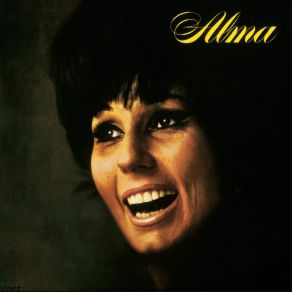Alma
Download links and information about Alma by Alma Cogan. This album was released in 1997 and it belongs to Electronica, Pop genres. It contains 12 tracks with total duration of 36:45 minutes.

|
|
|---|---|
| Artist: | Alma Cogan |
| Release date: | 1997 |
| Genre: | Electronica, Pop |
| Tracks: | 12 |
| Duration: | 36:45 |
| Buy it NOW at: | |
| Buy on iTunes $9.99 | |
| Buy on Amazon $9.49 | |
Tracks
[Edit]| No. | Title | Length |
|---|---|---|
| 1. | Let Her Go | 1:59 |
| 2. | Trains and Boats and Planes | 3:14 |
| 3. | Ticket To Ride | 3:16 |
| 4. | I Get a Kick Out of You | 3:53 |
| 5. | There's a Time and Place | 2:52 |
| 6. | Eight Days a Week | 3:56 |
| 7. | Yesterday | 3:13 |
| 8. | I Feel Fine | 2:45 |
| 9. | Jolly Good Company | 2:13 |
| 10. | More | 2:31 |
| 11. | Don't You Know Yockomo | 3:09 |
| 12. | Now That I've Found You | 3:44 |
Details
[Edit]It's very difficult to listen to this posthumous album, reissued by EMI on CD in 1997 as part of its 100th anniversary series, without shedding a tear or two. Cogan's sense of release on the opening number, "Let Her Go," and her exuberant phrasing in front of an explosive, percussion-driven orchestral accompaniment, displays a glorious, tragic poignancy. Her version of "Trains and Boats and Planes" isn't much less beguiling, her radiant singing bringing an unexpectedly passionate joy to a song that's often tinged with sadness and angst. "I Get a Kick out of You" offers her in a gently coy performance highlighted by a playful change of tempo on the break, making for a rendition that's about as memorable as Sinatra's. "There's a Time and a Place" is one of two Cogan co-authored songs here, and it's first-rate pop, bouncy and memorable, with some great hooks and, in this performance, a hot vocal performance by the songwriter. Her version of "Ticket to Ride" has a playful, sassy feel, somewhat reminiscent of a young Dionne Warwick, but the outstanding Beatles cover here is "Eight Days a Week," done as a slow, soaring torch song and that could be the best pop reinterpretation of a Beatles song ever done — arranger/conductor Stan Foster deserves credit as well for this jewel, and also for the clever re-interpretation of "I Feel Fine." "Jolly Good Company" offers Cogan working in a lean big-band-type arrangement, where Foster might just as well be leading the Count Basie Orchestra, while "More" presents the pop music standard in almost a quietly rocking version, dominated by electric guitars and an almost soulful performance by Cogan. The lady could, indeed, rock as "Don't You Know, Yockomo" demonstrates. The album ends with the passionately romantic "Now That I've Found You," which she co-wrote with Foster. Apparently, Cogan, who hadn't released an album in several years, had this LP in the works when she succumbed to her illness, and it was completed using several single tracks from 1965. Whatever its genesis, you will find it a hauntingly beautiful memorial, without a flaw in evidence.